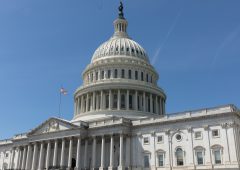California City Seeks Bitcoin ATMs Regulation
07.08.2024 22:00 1 min. read Alexander Stefanov
A city in California is seeking state and local regulations to govern Bitcoin ATMs in order to reduce fraud and increase transparency.
The City of Chico, California, is looking to a combination of state legislation and local ordinances to improve regulation of Bitcoin ATMs.
During a discussion held on August 7 by the Local Government Committee, Andy Pickett, Chief Administrative Officer of Butte County, discussed ongoing efforts to regulate Bitcoin ATMs.
Pickett highlighted recent state legislation aimed at curbing fraud related to Bitcoin ATMs.
An investigation conducted by California in October 2023 revealed that some crypto ATMs were charging premiums as high as 33%, with some machines allowing transactions worth up to $50,000. Consequently, a bill was passed to limit daily deposits to $1,000 and require disclosure of receipts and operator names for all crypto ATM transactions.
Pickett noted:
The significant impact will come from the bill, effective July 2025, which will regulate Bitcoin ATMs in a manner similar to banks.
He also stressed the need for local regulation of Bitcoin ATMs, mentioning that “each jurisdiction will need to enact its own ordinance to regulate these machines, and such ordinances will likely face legal challenges.”
-
1
U.S. State of Connecticut Blocks Crypto from Public Sector Operations
12.06.2025 16:00 1 min. read -
2
Federal Reserve Clears Path for Banks to Enter Crypto Market
24.06.2025 8:00 2 min. read -
3
Vietnam Charts a Clear Course for Digital Assets With New 2026 Law
16.06.2025 18:00 1 min. read -
4
GENIUS Act Clears Senate, Setting Stage for First U.S. Crypto Law
18.06.2025 12:00 1 min. read -
5
Coinbase and Set Gemini to Expand in EU Under MiCA Rules
17.06.2025 13:00 2 min. read
Kazakhstan to Establish State Crypto-Reserve Under Central Bank Oversight
Kazakhstan is taking a major step toward integrating digital assets into its national financial strategy, with plans to establish a state-managed crypto-reserve.
Europe’s Largest Euro-Denominated Spot Crypto Exchange Secures License Under MiCA
Bitvavo, Europe’s largest euro-denominated spot crypto exchange, has officially received a MiCA license from the Dutch Authority for the Financial Markets (AFM), allowing the firm to operate across all 27 European Union member states.
U.S. Crypto Investors Hit by IRS Letter Surge as Tax Crackdown Looms
In just two months, crypto tax platform CoinLedger observed a staggering 700% surge in the number of U.S. users receiving IRS warning letters, signaling a sharp escalation in federal tax enforcement targeting digital asset holders.
Ripple Drops Cross-Appeal, Moves to End SEC Case “Once and for All”
Ripple CEO Brad Garlinghouse announced Friday that the company is officially dropping its cross-appeal in its long-running legal battle with the U.S. Securities and Exchange Commission (SEC), signaling a final move toward ending the years-long case.
-
1
U.S. State of Connecticut Blocks Crypto from Public Sector Operations
12.06.2025 16:00 1 min. read -
2
Federal Reserve Clears Path for Banks to Enter Crypto Market
24.06.2025 8:00 2 min. read -
3
Vietnam Charts a Clear Course for Digital Assets With New 2026 Law
16.06.2025 18:00 1 min. read -
4
GENIUS Act Clears Senate, Setting Stage for First U.S. Crypto Law
18.06.2025 12:00 1 min. read -
5
Coinbase and Set Gemini to Expand in EU Under MiCA Rules
17.06.2025 13:00 2 min. read


